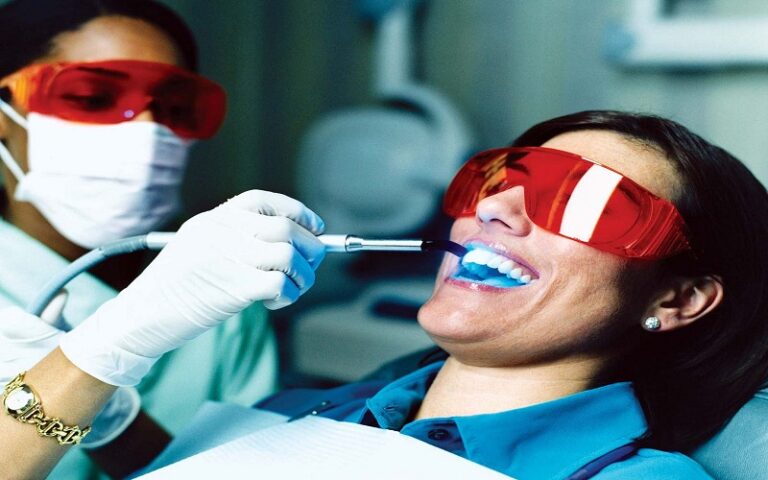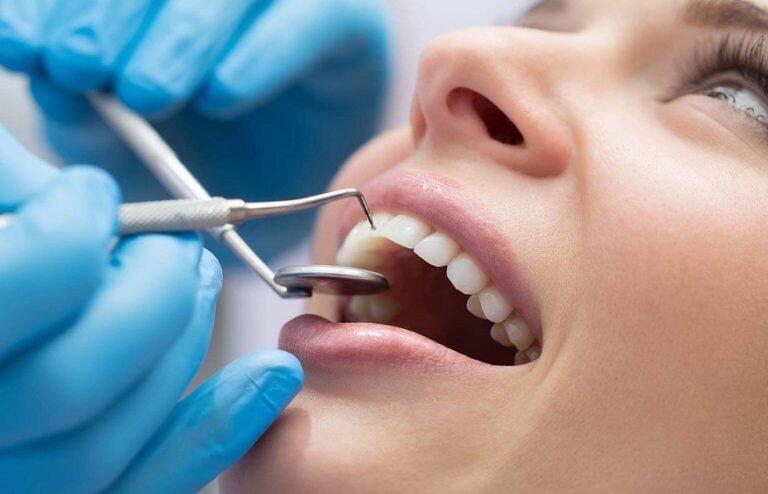In fact, dental veneers are the star treatment when it comes to dental aesthetics because they can drastically change your appearance in a quick, personalized, and painless way.
Also, dental veneers, if you follow your dentist’s guidelines, can last a long time, so their cost ends up being low compared to the benefits they bring to our image and safety.
However, and like everything in this world, nothing lasts forever. By this we mean that if the teeth themselves end up breaking, wearing down and even being lost, it is only natural that your dental veneers may also suffer from problems.
However, the majority of problems with dental veneers are usually related to misuse or poor care (as is the case with natural teeth).
What type of dental veneers last the longest?
We currently find different materials and brands of veneers. As far as materials are concerned, the most used are feldspathic ceramics, lithium disilicate, composite and hybrid ceramics. As a general rule, composites offer strength, flexibility and good aesthetics but with a limited duration , i.e. around 5 years, while ceramics offer greater aesthetics, greater hardness, less flexibility and a much longer duration. long, about 10 or 15 years. years on average.
In ceramics, the greater the aesthetics (vitreous phase), the greater the fragility, so the most aesthetic material will always be the most fragile and the one that requires the most care.
For its part, the hybrid ceramic, with a ceramic base but with resin inserts, offers an aesthetic very close to the integral ceramic but with the advantages of the composites , so many people end up choosing this material, because it allows to obtain a good aesthetics without having to give up certain uses (for example, biting into a sandwich with the central incisors).
Another material that enjoys prestige is lithium disilicate, a ceramic material of incredible hardness but with an aesthetic very similar to feldspar ceramic, which represents the pinnacle of aesthetics and fragility.
Therefore, lithium disilicate would be an option for cases where premium aesthetics are desired with hardness also guaranteed.
How to maintain dental veneers?
Although we have just said that dental veneers can last 10 to 15 years, 20 and 25 in many cases , the truth is that if we do not maintain proper use and care, this period can be shortened to the minimum possible. , i.e. a few hours.
It may seem like an exaggeration, but it’s not, because if we think that dental veneers can withstand everything, we are wrong. Dental veneers, like our teeth, need to be cared for. Let’s see what factors can determine the life of our veneers.
Foods and drinks with coloring
Foods and beverages containing dyes may eventually stain composite veneers and hybrid veneers, but not all-ceramic veneers.
The thing is, ceramic materials are 100% inorganic and cannot be altered by dyes . However, composite and hybrid ceramics (ceramic matrix with resin particles) are sensitive to foods and drinks containing dyes, which is why they eventually stain.
So examples of foods and beverages that should be controlled if you like composite or hybrid veneers are coffee, red wine, cola, curry, berries, or soy sauce.
Another classic in dental staining. Tobacco, which stains natural teeth, also affects hybrid and composite veneers. It is obvious that smoking tobacco has no positive aspect and it only brings problems to our body. If your respiratory and cardiovascular health isn’t good enough, here’s another reason not to smoke: Tobacco stains composite and hybrid teeth and veneers.
However, as was the case with the foods and beverages in the previous section, tobacco cannot alter ceramics, so anything smoked will have ceramic veneers unchanged. Another thing is that due to smoking you lose the teeth that support the veneers due to smoking but we will cover that in another article.
Using teeth as tools and chewing objects
Nervous habits (biting nails, biting pen caps, etc.) and the misuse of our teeth (cutting tape, peeling, breaking objects, opening containers, etc.) are very harmful to our facets. dental If you use your teeth for what you don’t touch, you will end up going to the dentist.
For people suffering from bruxism, dental veneers are recommended contraindicated, since nothing can resist an adult unconsciously clenching his teeth with force. However, if there is no other option or much is desired, relief splints will be the only option to protect the dental veneers.
Maintenance and professional checks
Although ceramic materials do not require maintenance, the tooth and the gum that houses them do. That is to say, a ceramic dental veneer only needs that its union with the tooth does not end up being a nest of germs and bacteria, therefore a professional annual hygiene will prevent the gums from suffering from the presence of a foreign object such as the veneer.
Different is the case of composite veneers and hybrid ceramics, since the presence of resins requires maintenance so that the aesthetics are like that of the first day.
Very hard or sticky foods
Dental veneers, regardless of the material of the composition, can become loose and fracture if very hard or even sticky foods are chewed.
Veneers are not unbreakable, like our teeth, so if we want to keep veneers for many years, we must keep in mind that certain behaviors and foods are potentially harmful to our veneers .














+ There are no comments
Add yours